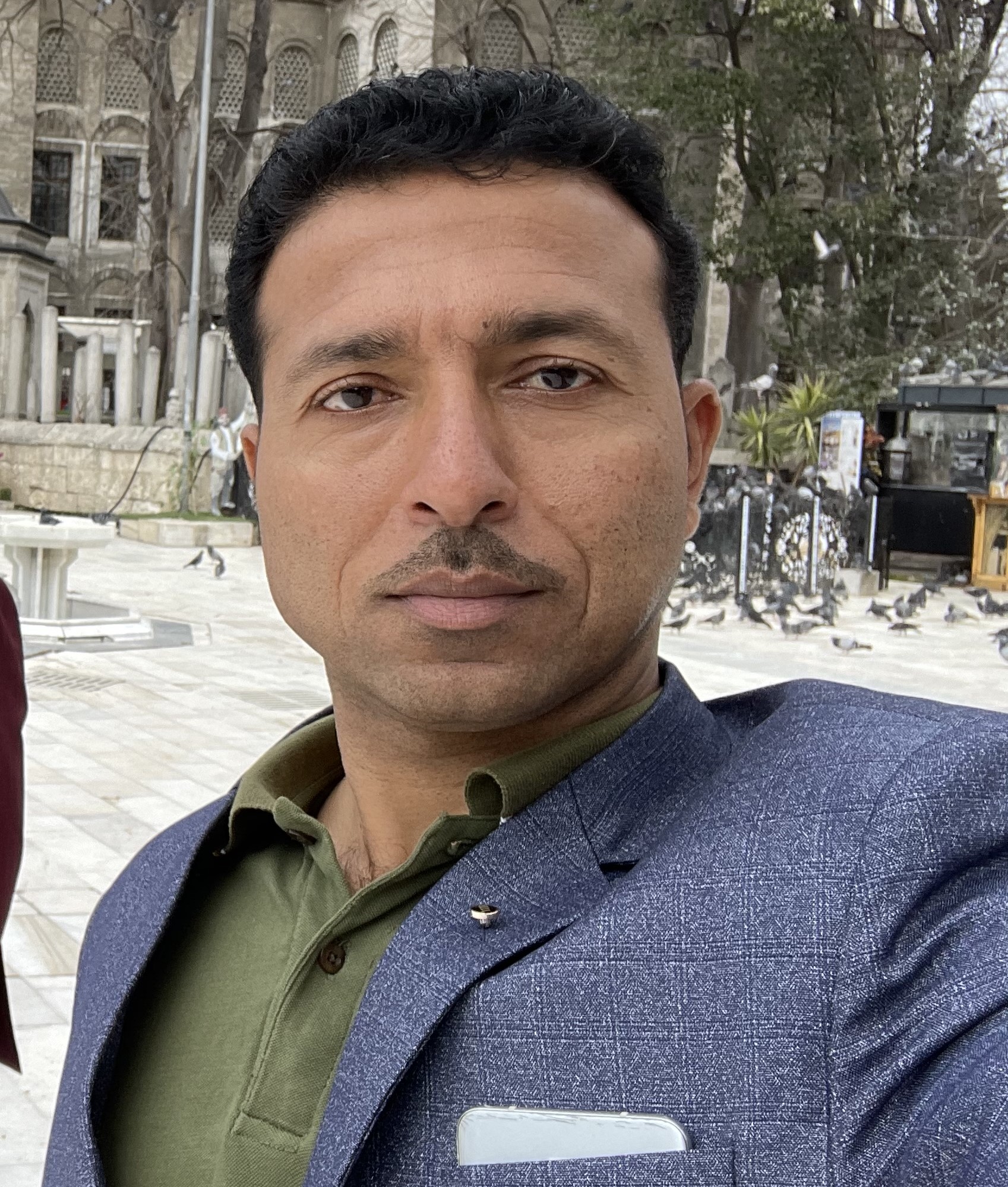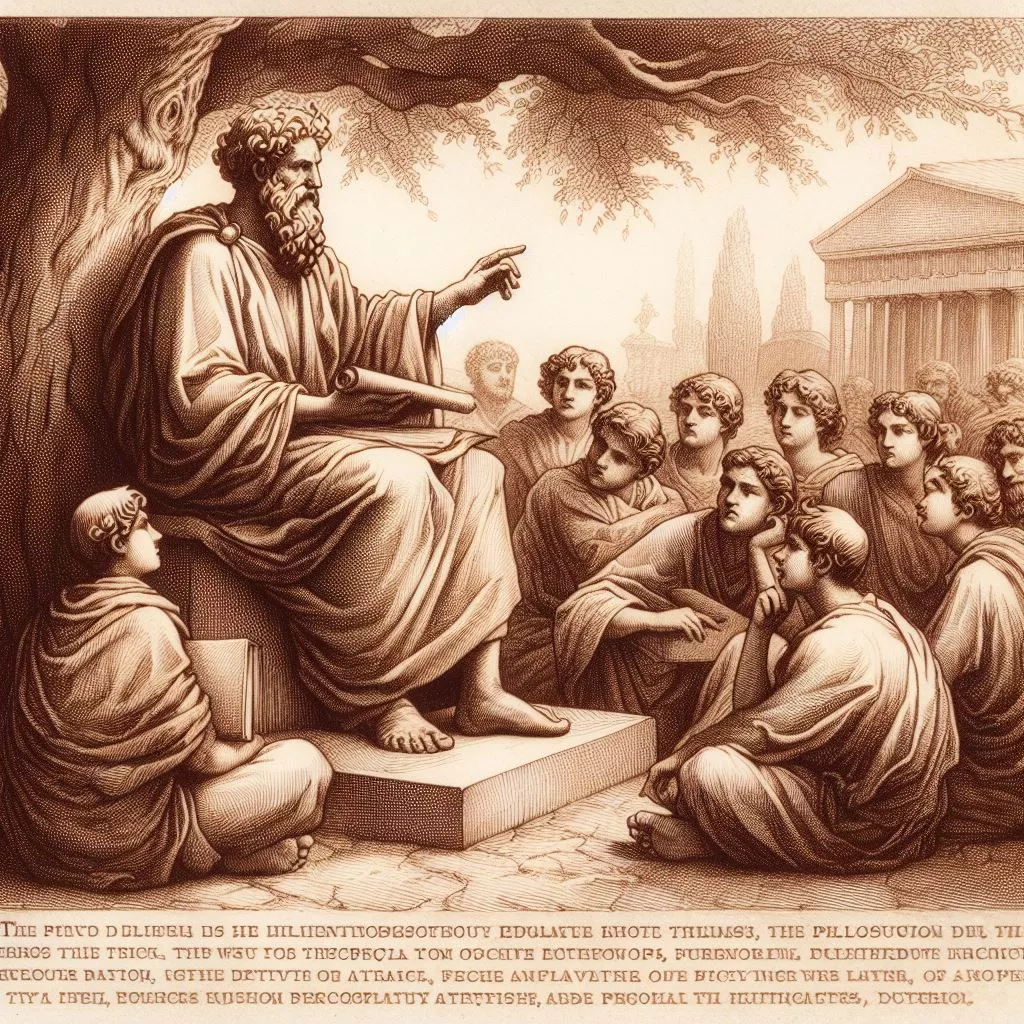Introduction
Philosophy is a broad field that encompasses the study of many different topics, including the nature of reality, knowledge, truth, morality, and the meaning of life. It involves the use of reason and critical thinking to analyze and understand complex ideas, and to explore the fundamental nature of the world and existence. Philosophers use various methods, including logic, argument, and reflection, to examine ideas and try to understand their implications and consequences. The ultimate goal of philosophy is to gain a better understanding of the world and our place in it and to use this understanding to make more meaningful decisions about how to live our lives. (Hildebrand & Seifert, 1960); (Deleuze & Guattari, 1994)
Philosophy of Education
The philosophy of education is the field of philosophy that addresses questions about the nature, objectives, and challenges of education. It encompasses a wide range of topics, including the aims and objectives of education, the role of teachers and students, the methods and approaches used in teaching and learning, the curricula and materials employed, and how education is related to other aspects of life. Philosophers of education consider questions such as: What is the purpose of education? What should be taught, and how should it be taught? How does education relate to society and culture? What is the role of education in the promotion of personal and social development? These and other questions have been debated by philosophers, educators, and policymakers for centuries, and continue to be explored today. (Woods & Barrow, 2006); (Noddings, 2018)
How to teach and what to teach, views of different philosophers
There are many different philosophies of teaching, and different teachers may have their unique approaches to teaching based on their personal beliefs, values, and experiences. some common and well-known philosophies on education are: –
Progressivism
Progressivism is a broad and diverse philosophy that has influenced education around the world. Its emphasis on student-centered, experiential learning has shaped the way that many teachers approach their work and has helped to promote more innovative and engaging forms of education.
John Dewey is often considered the father of progressivism in education. He argued that education should be linked to the experiences of students and that the classroom should be a place where students can learn how to think critically and solve problems. Dewey also believed that education should be democratic and that students should have a say in their learning. Other notable progressive philosophers include Jean Piaget, who focused on the role of cognitive development in learning, and Lev Vygotsky, who emphasized the role of social interactions in learning. (Radu, 2011)
Other important figures in the history of progressivism include Maria Montessori, who developed the Montessori method of education, and Paulo Freire, who wrote about the role of education in the promotion of social justice and liberation. (Montessori, 2013)
Essentialism
Essentialism is a philosophy of education that emphasizes the transmission of traditional knowledge and skills, often with a focus on the values and beliefs that have been considered important throughout history. Essentialists believe that there is a common core of knowledge that is important for all students to learn and that this knowledge should be the foundation of the curriculum. Essentialist educators typically focus on teaching facts, concepts, and skills that are deemed essential for students to succeed in their academic and personal lives.
Some notable essentialist philosophers include Mortimer Adler, who argued for the importance of a liberal arts education. (Britannica 2022)
While essentialism has been an influential philosophy of education, it has also been criticized for its limited focus on traditional subjects and its lack of recognition of the diverse experiences and needs of individual students.
Perennialism
Perennialism is a philosophy of education that emphasizes the transmission of timeless, universal truths that are considered to be the foundation of all knowledge. Perennialists believe that there is a common core of important ideas that have been passed down through the ages and that these ideas should be the focus of the curriculum. Perennialists tend to place a strong emphasis on the study of traditional subjects such as literature, philosophy, and mathematics, and they often prioritize the development of critical thinking skills and intellectual discipline.
Some notable Perennialist philosophers include Mortimer Adler, who argued for the importance of a liberal arts education, and Robert Maynard Hutchins, who emphasized the role of the great books in education. (Jent, 2003)
While perennialism has been an influential philosophy of education, it has also been criticized for its focus on traditional subjects and its lack of concern for the diverse experiences and needs of individual students.
Existentialism
The existentialist movement of philosophy emphasizes individual being and the freedom to choose one’s path in life. It is concerned with the meaning and purpose of life and the individual’s place in the world. Existentialists believe that people must find their purpose in life, as there is no divine meaning or purpose assigned by a higher power or the universe.
Education, from an existentialist perspective, is not just about imparting knowledge or skills, but rather about helping individuals think about their selves and find their meaning, goals, and purpose in life. Existentialists believe that education should encourage critical thinking, creativity, and the exploration of individual values and beliefs.
Some well-known existentialist philosophers include Jean-Paul Sartre, Martin Heidegger, and Friedrich Nietzsche. Their ideas have had a significant influence on education and other fields. (VAN MORRIS, 1954); (Illeris, 2018)
Constructivism
Constructivism is a philosophy of education that emphasizes the role of the learner in constructing their knowledge. Constructivists believe that people actively, with their interaction with others, construct their perspective of the world through their experiences intercommunication, and interaction with others, and that the role of the teacher is to facilitate this process rather than to transmit knowledge. In a constructivist classroom, the teacher might provide students with authentic, real-world problems to solve, rather than simply giving them facts to memorize.
According to Piaget’s theory of cognitive development, individuals actively construct their understanding of the world through their experiences and interactions with their environment. This means that learning is not just a matter of passively receiving information, but rather of actively constructing meaning through exploration and experimentation.
Piaget’s ideas about the active role of the learner in the process of learning align with the constructivist philosophy of education, which emphasizes the importance of experiential learning and the active role of the learner in constructing their knowledge and understanding. (Smith, 2017); (Steffe & Gale1995)
Constructivism has had a significant influence on education and has led to the development of many innovative teaching methods, such as project-based learning and problem-based learning. However, it has also been criticized for its lack of emphasis on the transmission of traditional knowledge and skills.
Social Constructivism
Social constructivism is a branch of constructivism that emphasizes heavily on the role of social interactions and the context of culture in shaping an individual’s perspective of the world. Social constructivists believe that knowledge is not something that is fixed and objective but rather is shaped by the social and cultural contexts in which it is learned and used. In a social constructivist classroom, the teacher might focus on facilitating discussions and activities that help students understand how different social and cultural perspectives shape our understanding of the world.
Some notable social constructivist philosophers include Vygotsky and Basil Bernstein.
Social constructivism has had a significant influence on education and has led to the development of many innovative teaching methods, such as collaborative learning and culturally responsive teaching. (Liu & Matthews, 2005). However, it has also been criticized for its lack of emphasis on the transmission of traditional knowledge and skills.
Behaviorism
The psychological theory of Behaviorism focuses on the investigation and study of observable behaviors, rather than internal mental states. Behaviorists believe that behaviors can be learned and modified through conditioning, which is the process of reinforcing or punishing behaviors to increase or decrease their frequency. There are two types of conditioning: classical conditioning, which was first described by Ivan Pavlov, and operant conditioning, which was first described by B.F. Skinner.
In classical conditioning, an animal or human learns to associate a particular stimulus with a particular response. For example, Pavlov’s famous experiment with dogs showed that they could be trained to salivate at the sound of a bell if the bell was repeatedly paired with the presentation of food.
Operant conditioning involves reinforcing or punishing a behavior to increase or decrease its frequency. Reinforcement can be either positive (the addition of a reward) or negative (the removal of an aversive stimulus). Punishment can also be either positive (the addition of an aversive stimulus) or negative (the removal of a reward).
Behaviorist teaching methods are based on the idea that desired behaviors can be reinforced and undesired behaviors can be punished to shape and modify students’ behaviors. These methods often involve the use of rewards (such as stickers or praise) to reinforce desired behaviors and consequences (such as time-outs or loss of privileges) to discourage undesired behaviors.
Some notable behaviorists include Ivan Pavlov, B.F. Skinner, Edward Thorndike, and John Watson. These researchers conducted many influential experiments on conditioning and behaviorism, and their work played an immense role in shaping the field of psychology and teaching practices. (Bryant et.al., 2013)
How philosophers’ views helped in developing the education
Philosophers have had a significant influence on the development of education and educational theory. Many of the ideas and concepts that are central to modern education have their roots in the works of philosophers.
One example is the concept of the “blank slate,” or tabula rasa, which was proposed by John Locke in the 17th century. Locke argued that individuals are born without any innate knowledge or predispositions and that their experiences and environment shape their characteristics and behaviors. This idea has had a significant impact on the way that education is approached, with a focus on the role of the environment and experience in shaping individuals’ knowledge and abilities. Educational theories of Behaviorism, Constructivism, and Progressivism are heavily influenced by the empiricist philosophies of John Locke. (Androne, 2014)
Another influential philosopher in the field of education is Jean-Jacques Rousseau, who argued that education should be based on the natural development of the child. He believed that children are naturally curious and have a desire to learn, and that education should be tailored to their individual needs and interests. This idea has had a significant influence on progressive education, which emphasizes experiential learning and the importance of the individual student. Rousseau’s ideas have a great influence on the Constructivist theory. (Boyd, 1911)
Plato, a famous Greek philosopher, also had significant ideas about education. In his dialogues, Plato argued that education should be used to cultivate virtue and wisdom in individuals and that it should be tailored to the needs and abilities of each individual. He believed that education should be focused on the development of the whole person, rather than just the acquisition of knowledge or skills. The Essentialist theory has its roots in the philosophies of Plato. (Kamtekar, 2008)
Friedrich Nietzsche, a German philosopher, had a different perspective on education. He argued that education should be used to help individuals discover their own unique identities and values, rather than just conform to the expectations of society. He believed that education should be focused on helping individuals become their best selves, rather than just preparing them for a specific career or role in society. Though Friedrich Nietzsche was primarily a philosopher and not an educational theorist. However, Nietzsche’s ideas about education and the role of education helped construct the perennialist and existentialist schools of thought. (Allen, 2017)
Conclusion
Overall, the ideas and writings of philosophers have had a significant impact on the development of education and stayed influential in the contemporary era. Their ideas have shaped the way that education is viewed and practiced, and have helped to shape the way that we think about the role of education in society.
References:
Allen, A. (2017). Awaiting education: Friedrich Nietzsche on the future of our educational institutions. Philosophical Inquiry in Education, 24(3), 197-210.
Androne, M. (2014). Notes on John Locke’s views on education. Procedia-social and behavioral sciences, 137, 74-79.
Boyd, W. (1911). The Educational Theory of Jean Jacques Rousseau. Longmans, Green and Company.
Bryant, L. C., Vincent, R., Shaqlaih, A., & Moss, G. (2013). Behaviorism and behavioral learning theory.
Deleuze, G., & Guattari, F. (1994). What is philosophy? Columbia University Press.
Illeris, K. (2018). An overview of the history of learning theory. European Journal of Education, 53(1), 86-101.
Jent, G. A. (2003). Perennialism: Or, “Give Me That Old Time Religion”. Torch Trinity Journal, 6, 1-22.
Kamtekar, R. (2008). Plato on education and art. The Oxford Handbook of Plato, 336-59.
Liu, C. H., & Matthews, R. (2005). Vygotsky’s Philosophy: Constructivism and Its Criticisms Examined. International education journal, 6(3), 386-399.
Montessori, M. (2013). The Montessori method. Transaction publishers.
Noddings, N. (2018). Philosophy of education. Routledge.
Radu, L. (2011). John Dewey and progressivism in American education. Bulletin of the Transylvania University of Brasov, Series VII: Social Sciences and Law, (2), 85-90.
Smith, L. (2017). Necessary knowledge: Piagetian perspectives on constructivism. Routledge.
Steffe, L. P., & Gale, J. E. (Eds.). (1995). Constructivism in education. Psychology Press.
VAN MORRIS, C. (1954), EXISTENTIALISM AND EDUCATION. Educational Theory, 4: 247-258.
Von Hildebrand, D., & Seifert, J. (1960). What is philosophy? Routledge.
Woods, R., & Barrow, R. (2006). An introduction to philosophy of education. Routledge.

About the Author:
Shahid Essa is a blogger and M. Phil Scholar from Iqra University Karachi


